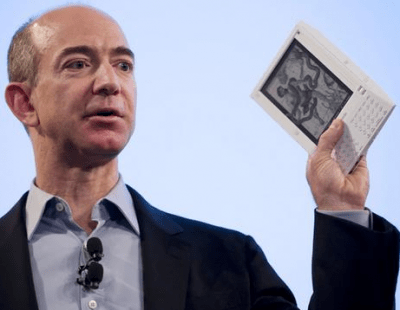
For Amazon, the deal helps ensure that its Kindle e-reader has a supply of books only available on its device. During his company’s quarterly earnings call Thursday afternoon, Amazon.com CEO Jeff Bezos confidently announced that the company is now selling more Kindle books than hardcover books. Though Kindle sales are growing substantially, several analysts pegged increased e-reader competition as one of the culprits responsible for an earnings shortfall.
[aditude-amp id="flyingcarpet" targeting='{"env":"staging","page_type":"article","post_id":200643,"post_type":"story","post_chan":"none","tags":null,"ai":false,"category":"none","all_categories":"business,","session":"A"}']Random House, one of the Wylie Agency’s print publishers, followed the Amazon-Wylie announcement with a statement declaring that it would no longer conduct any new English-language business with the Wylie Agency.
The retaliatory move shows how fraught the business of e-books has become, as authors, agents, publishers, device makers, and retailers maneuver for advantage and try to reshape the division of profits in the publishing industry.
AI Weekly
The must-read newsletter for AI and Big Data industry written by Khari Johnson, Kyle Wiggers, and Seth Colaner.
Included with VentureBeat Insider and VentureBeat VIP memberships.
During the past few months, with the launch of the iPad, Kindle sales growth and news that Google will launch an online book business, the traditional publishing industry business model has come under attack. Authors are demanding a higher percentage of e-book sales while publishers are trying to justify their worth in digital distribution.
While authors usually receive 25 percent of royalties on e-book sales, they reason that, because of lower costs and lower prices on e-books, that number should be closer to 50 percent.
The Wylie Agency has set up a new company called Odyssey Editions to handle e-book distribution. Andrew Wylie, the company’s founder, had declared his upstart’s intention to sign e-book deals directly, without help from publishers, in an interview with Harvard Magazine.
VentureBeat's mission is to be a digital town square for technical decision-makers to gain knowledge about transformative enterprise technology and transact. Learn More
